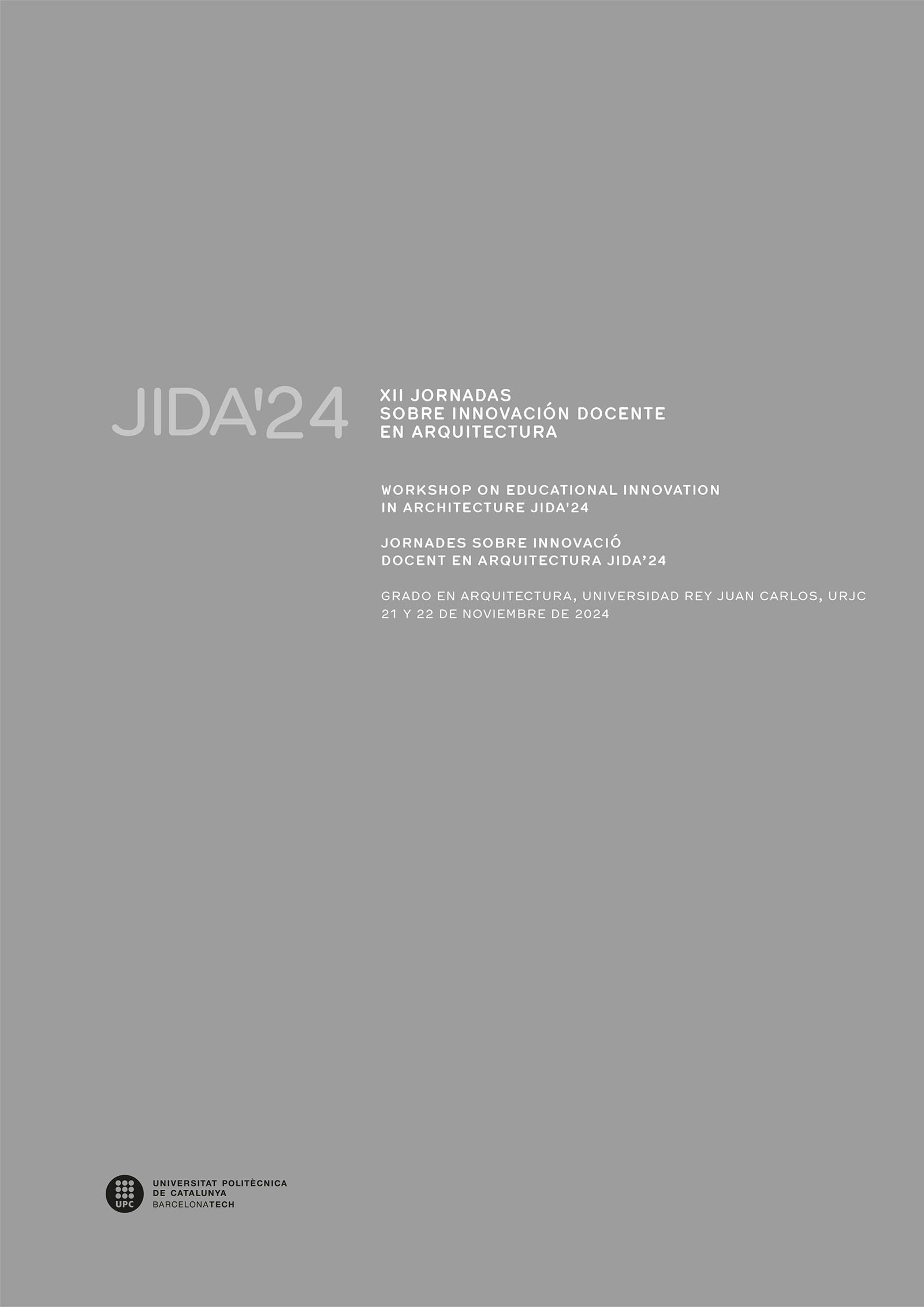Application of AI in theoretical frameworks: challenges of the Architectural Thesis Plan
DOI:
https://doi.org/10.5821/jida.2024.13339Keywords:
Artificial Intelligence (AI), architecture research, teaching-learning, argumentationAbstract
The elaboration of theoretical frameworks for thesis projects constitutes an important basis in the academic world. The need arises to unify criteria in the literature review process, and to establish a guide for its formulation. The pedagogical experience proposed is based on the methodology of Creswell (2018) and is applied in the thesis plans of 24 students of the subject Research Workshop 1 of the Faculty of Architecture and Urbanism (FAU). The applied methodology allows students to elaborate a database taking bibliographic bases as a source and subsequently improve them with the help of Artificial Intelligence (AI) with the ResearchRabbit program for the elaboration and improvement of their bibliographic map. The results show a change in the number of documents consulted, in the strength of the argumentation and in the conceptualization.
References
Creswell, J.W., y Creswell, J.D. 2018. Research design: Qualitative, quantitative, and mixed methods approaches. Sage publications.
Gil, J.P. 2018. Un marco teórico y metodológico para la arquitectura vernácula. Ciudades, (21), 01-28. https://doi.org/10.24197/ciudades.21.2018.01-28
Jiménez-Aleixandre, M.P. y Díaz de Bustamante, J. 2003. Discurso de aula y argumentación en la clase de ciencias: cuestiones teóricas y metodológicas. Enseñanza de las Ciencias, 16, 359-370.
Juca-Maldonado, F. 2023. El impacto de la inteligencia artificial en los trabajos académicos y de investigación. Revista metropolitana de Ciencias aplicadas, 6, 289-296.
Justi, R. 2006. La enseñanza de ciencias basada en la elaboración de m odelos. Enseñanza de las Ciencias, 24, 173-184.
Lipman, M. 1997. Pensamiento complejo y educación. Madrid: Ediciones de la Torre. 366 pags.
Llorca, J. 2021. Aporías de la investigación en arquitectura: adaptación del modelo científico en la producción y divulgación del conocimiento explícito. ACE Architecture City and Environment, 16(46). https://doi.org/10.5821/ace.16.46.9531
Maldonado, F.J. 2023. El impacto de la inteligencia artificial en los trabajos académicos y de investigación. Metropolitana de Ciencias Aplicadas, (6), 23.
Martínez-Comesaña, M., Rigueira-Díaz, X., Larranaga-Janeiro, A., Martínez-Torres, J., Ocarranza-Prado, I., y Kreibel, D. 2023. Impact of artificial intelligence on assessment methods in primary and secondary education: Systematic literature review. Revista de Psicodidáctica (English ed.).
Prado-Arenas, D., Junyent, M., y Oliveras, B. 2022. Concepciones iniciales de Pensamiento Crítico y Creativo del profesorado de ciencias. Profesorado, Revista De Currículum y Formación Del Profesorado, 26(3), 547-567. https://doi.org/10.30827/profesorado.v26i3.21445
Ramos Carranza, A. 2015. De la investigación, la enseñanza y el aprendizaje experimental de la arquitectura / From research, teaching and the experimental learning of Architecure. Proyecto, Progreso, Arquitectura, (12), 14-17. https://doi.org/10.12795/ppa.2014.i12.10
Ramos, J.R.G. 2018. Cómo se construye el marco teórico de la investigación. Cadernos De Pesquisas, 48(169), 830-854. https://doi.org/10.1590/19805314517
Revilla, C.L.B., Huaquipaco, E.G.M., Arenas, D.L.P. , y Ramirez, A.M.P. 2023. Construction of a literature map on collaborative virtual white boards. Journal of Education and E-Learning Research, 10(4), 711-718. https://doi.org/10.20448/jeelr.v10i4.5098
Sabino, C. 1996. El proceso de investigación. Lumen-Humanitas.
Toulm in, S. 2003. Regreso a la razón. Barcelona: Ediciones Península.



















